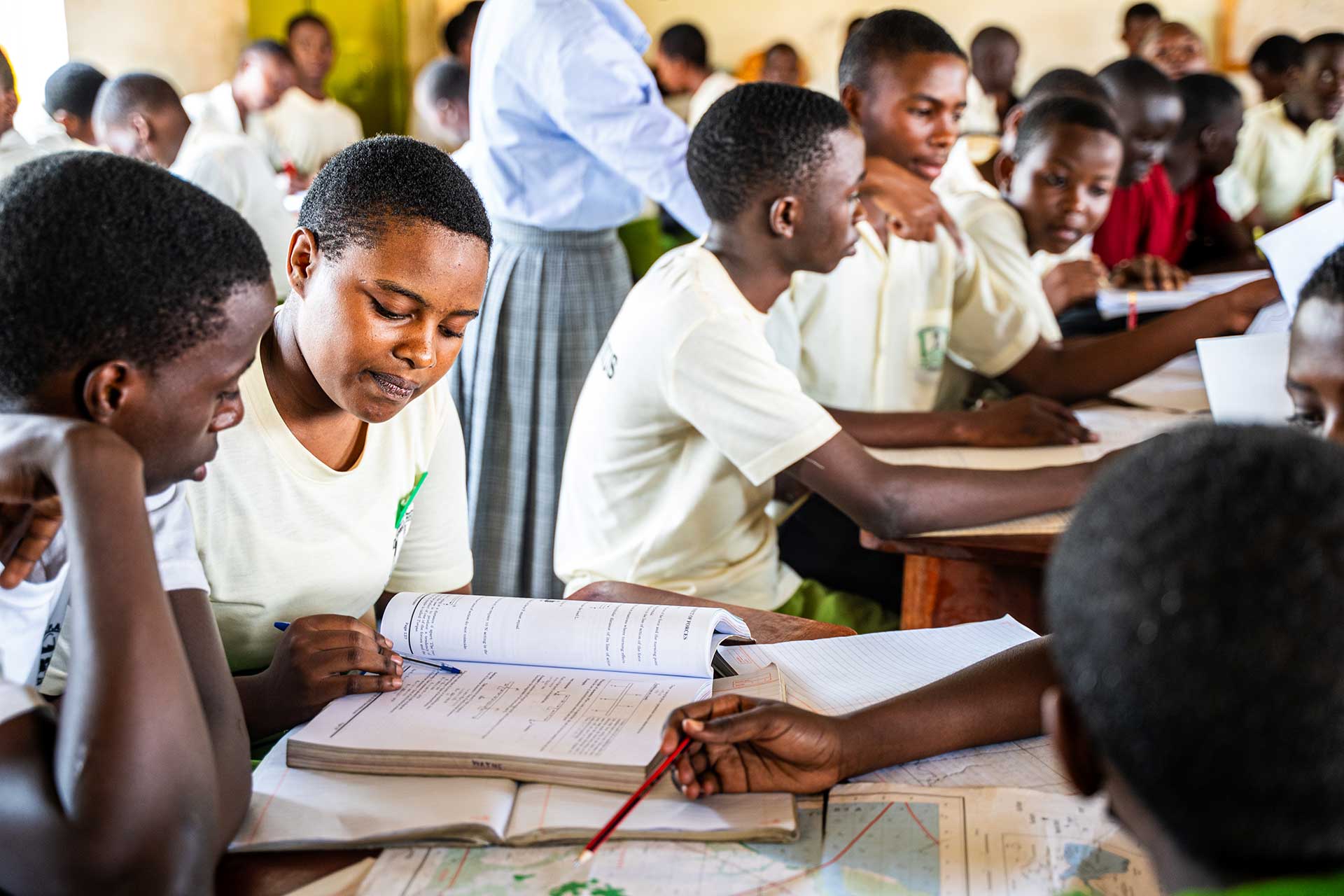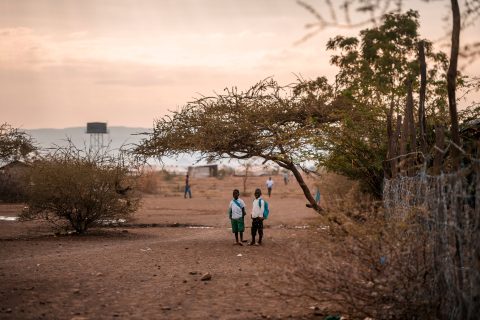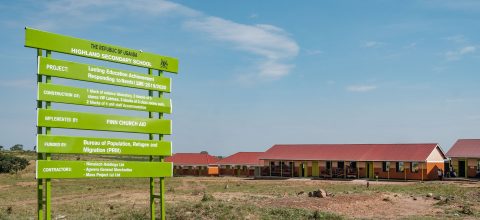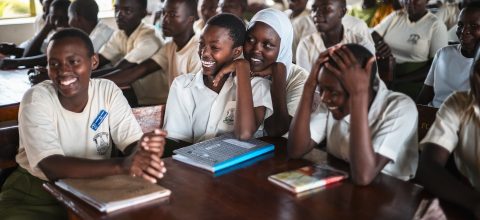Education becomes a pawn in global politics
In the refugee settlements of Kenya and Uganda, the school year started without new textbooks, menstrual hygiene products and school psychologists. By early April, 247 teachers and 90 FCA employees had lost their jobs due to US aid cuts.
Text: Elisa Rimaila
Photos: Björn Udd
THE BLOW CAME overnight when, in January 2025, the United States first abruptly froze, and then ended, most of its international aid. The approximately seven million dollars that the US State Department’s Bureau of Population, Refugees and Migration had granted to Finn Church Aid for its work in the largest refugee areas in Uganda and Kenya vanished into thin air.
Vallence Tukacungurwa, principal of Bukere Secondary School, sits pensively in his office. The school he leads in the Kyaka refugee settlement in Uganda has become a pawn in global politics.
“This has been an eye-opening experience,” says Tukacungurwa. “Anything can happen at any time.”
Some 500 kilometres to the north-east, his counterpart in the huge Kalobeyei refugee settlement in Turkana, northern Kenya, is feeling the same confusion.
“I also received my salary from US funding. I don’t really know if I should even be here right now or at home,” reflects Morning Star primary school principal Joshua Amunga, weeks after the announcement.
In the spring, Finn Church Aid was able to fill the gap left by the United States in Kalobeyei schools by paying the teachers’ salaries with funding from the UN refugee agency UNHCR. This was only a temporary solution. Without additional funding, only 70 of the approximately 300 teachers could continue working by May. This means that schools with up to 4,000 pupils may end up with only a dozen teachers.
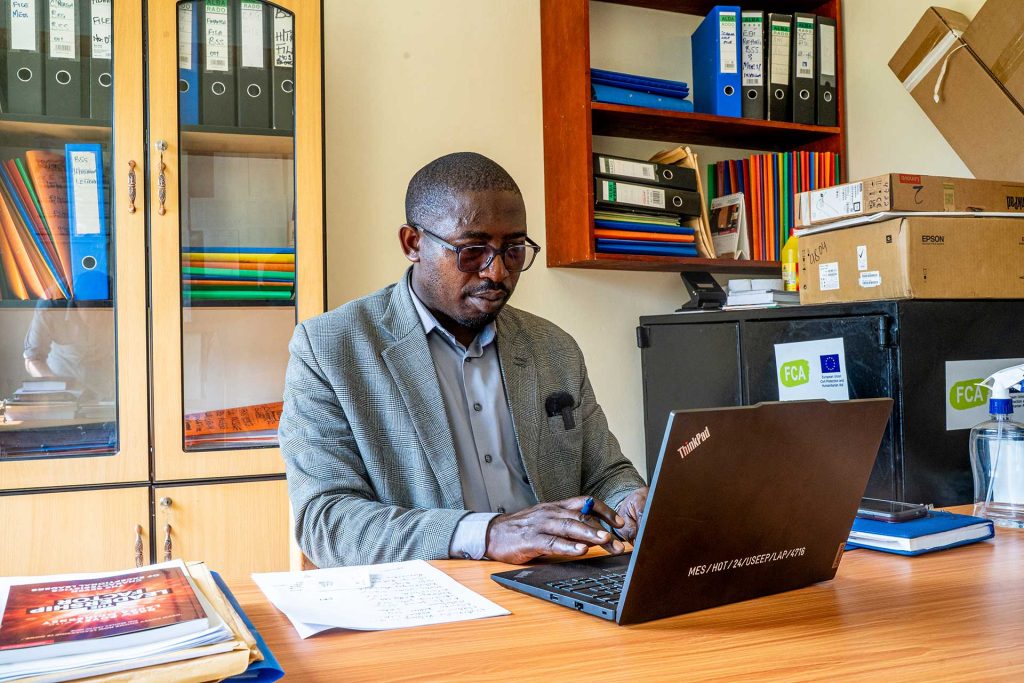
There was already a shortage of teachers at Morning Star School, as there was at almost all other schools in the wider Kakuma-Kalobeyei refugee settlement area.
“When there aren’t enough teachers, who guides and advises the children? Who keeps them busy and makes sure they concentrate?” Amunga asks.
He is already worried about the next term, as most of the school’s teachers do not have contracts for that period due to the cuts.
The desks are designed for three small or two larger students, but now there are as many as five or six children sitting at them. New books, also previously funded by the United States, were not available this year.
“When parents bring a new child to school, we don’t even have a single book to give them. What is a child supposed to do in class without textbooks or notebooks?” Amunga asks.
Due US funding cuts, four children may have to share a single textbook. Many other everyday school supplies have also not been provided this year.
“Teachers’ books and other materials such as blackboards; school uniforms for students; menstrual hygiene products…,” Amunga lists.
TEACHER Winifred Mbathan‘s work has become more emotionally demanding since the US’s sudden decision to withdraw school psychologists from Bright Star Secondary School, also located in Kalobeyei.
Most of the students have a refugee background. Life can be tough and insecure in refugee settlements, especially for girls, whose lives are overshadowed by sexual violence, teenage pregnancy, and the threat of forced early marriage.
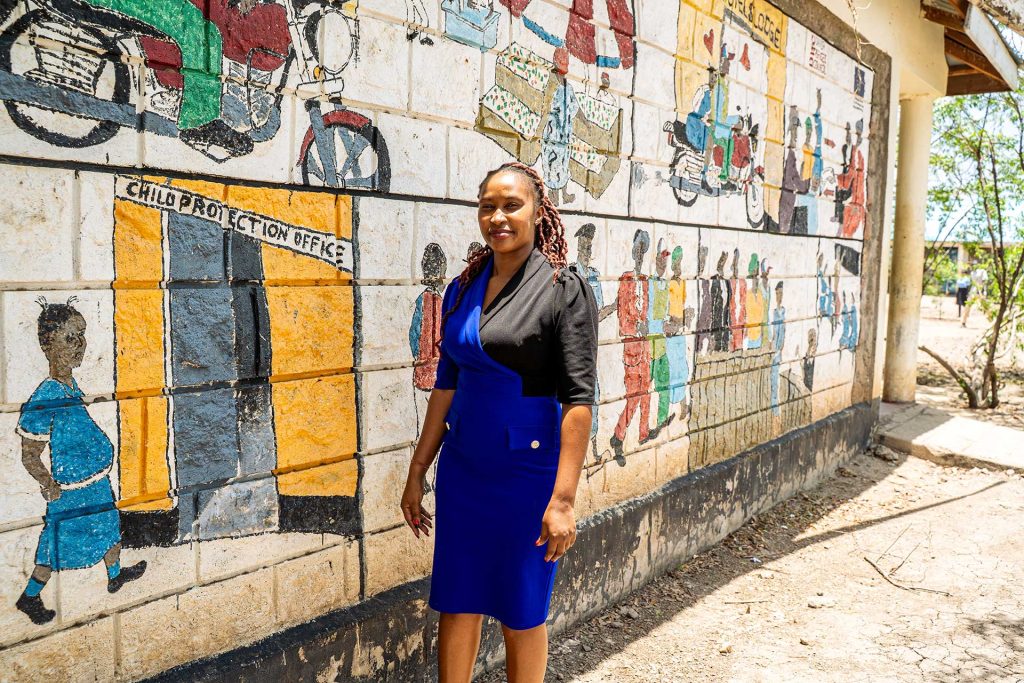
“Many students have lost family members and witnessed violence in their home countries. They are deeply traumatised,” Mbatha explains.
She remembers an incident where a student came to talk to her about suicidal thoughts.
“I don’t have any training as a psychologist. I and the other teachers no longer receive any help in dealing with these situations,” Mbatha reflects.
TEACHERS WITH REFUGEE backgrounds, like Maurice James Kolio and Esther Amal Sebit at Future Primary School, have experienced the effects of US cuts many times over.
The cuts have increased class sizes, made learning more difficult, and taken away school psychologists. Teachers from South Sudan who themselves arrived in Kenya as refugees now receive less of the UN food aid to which they are entitled. According to Kolio and Sebit, insecurity in the settlement has increased as the crisis has worsened.
“My family and I used to receive 2,500 shillings (about 17 euros) in cash assistance for food every month. Now the assistance is 1,000 shillings,” Kolio says.
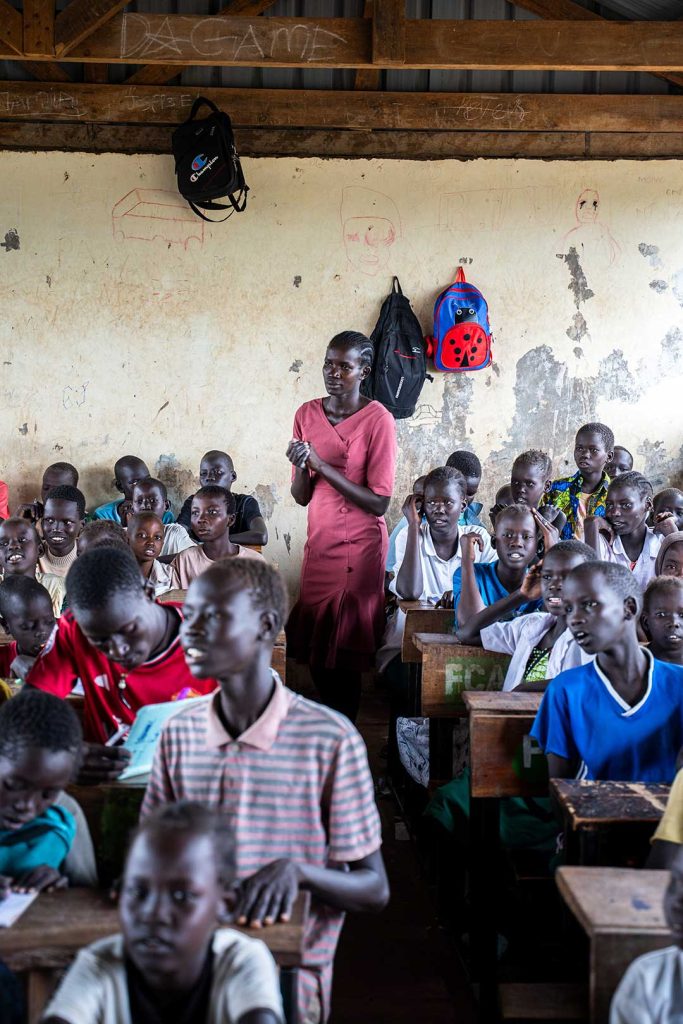
Sebit adds that food prices have risen sharply in recent years, and even before that, the money was not enough. The salary for a teacher is equivalent to about 54 euros a month.
“Cash assistance is spent entirely on food, but there is still less food on the table than last year,” Sebit says.
Not only are their own children also hungry, Kolio and Sebit cannot afford to send every one of their children to school. Teachers face the same problems as other families.
“More students are dropping out of school now. They are hungry and unable to concentrate. When they get food at school, student attendance rates are higher. Many don’t get enough to eat at home,” Sebit explains.
“When you have no food, no water, and no money, and you see your own children crying because they are hungry, it is difficult to plan for the future,” Kolio adds.
—
You can support FCA’s work by donating directly here.
—
